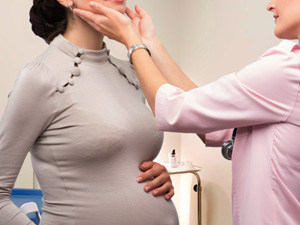For the week ending on January 22, 2017

Disposable diapers do not have the best environmental reputation, as they sit in landfills for a long time. But, now, a graduate student in Wales has found a way to recycle them into rayon and even into fuel! Read more here.
This is important for you because if you are undecided about what types of diapers to use, you can take heart that, at some point, disposable diapers may be used to power your car!
UCSD gets $10.5 million to study breast milk
Breast milk is an extraordinarily complex substance but we still don’t know all of its components. Now, a Swiss foundation has granted the University of California, San Diego 10.5 million dollars to better define how different genetic and environmental factors determine the composition of breast milk and how that milk, in turn, affects babies. Read more here.
This is important for you because it will help us understand flows to your baby through your milk and how that may affect him or her.

The American Thyroid Association has updated the guidelines for the diagnosis and management of thyroid disease preconceptionally, during pregnancy, during the postpartum period, and over the course of lactation. These guidelines were first issued in 2011 but a lot has changed since then. These new recommendations were published in the journal Thyroid and can be seen in their entirety here.
This is important for you because inadequately treated hypothyroidism in pregnant women increases their risk of miscarriage, preterm delivery, and developmental abnormalities in the baby.

Some women have little trouble getting pregnant but have difficulty maintaining their pregnancies – a heartbreaking condition known as “recurrent pregnancy loss.” A new study indicates that vaginal treatment with the hormone progesterone, administered before women get pregnant, can help them complete healthy births. The same study has identified a molecular marker that can help doctors determine which women might benefit from the treatment. Read more coverage here.
This is important for you because if you, or anyone you know, have experienced two or more unexplained miscarriages, you should know about this option and discuss it with your healthcare provider.
Scientists can tweak adult cells to generate embryonic stem cells. These cells are able to mature into different cell types that can eventually be used to cure diseases. Now, in mice, scientists have worked one step backward – they have figured out a way to generate the egg and sperm cells that combine to make embryonic stem cells. This technology might one day be useful for women who cannot make healthy egg cells of their own, such as those who had to undergo chemotherapy before they reached childbearing age. But, like all new technologies, it entails some serious ethical quandaries. Read about the potential ramifications – both positive and negative – of this breakthrough here.
This is important for you because genetic technologies are proceeding at a breakneck pace and it is essential that society grapple with their ethical implications as technologies are formed and not after they are put into widespread use.
Two articles published in The Pulse were very popular this week:

– Five Pregnancy Myths Busted! debunks
This is important for you because pregnancy myths are timeless and rampant, and countering them with science might be the only way to dispel them. If you have ever gotten a dirty look while on line in Starbucks with a big belly, you will appreciate having these facts at your disposal.



